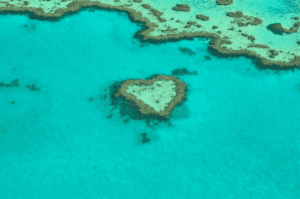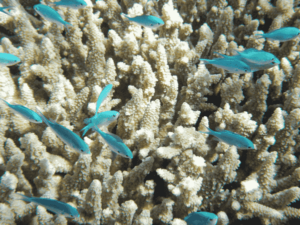The Great Barrier Reef, the world’s largest coral reef system, is not just an underwater paradise but also a vital part of our planet’s environmental health and biological diversity. Stretching over 2,300 kilometers along the coast of Queensland, Australia, this one of the best UNESCO World Heritage sites is a top destination for eco-tourists, marine biologists, and nature lovers from all corners of the globe. Its vast biodiversity, stunning beauty, and the environmental challenges it faces make the Great Barrier Reef a critical area for conservation and a mesmerizing window into the underwater world.
A Natural Wonder
Comprising nearly 3,000 individual reefs and 900 world’s most beautiful islands, the Great Barrier Reef is the most extensive coral reef ecosystem on the planet. It is so large that it can be seen from space and is often described as the largest living structure on earth. The reef is home to an astonishing variety of marine life, including over 1,500 species of fish, 400 species of coral, 4,000 types of mollusk, and hundreds of bird species, making it one of the most complex natural systems in the world.
The intricate structure of the reef itself is built from billions of tiny organisms known as coral polyps. These creatures have thrived in harmony to create an environment that supports a dizzying array of biodiversity. This diversity not only makes the reef a critical resource for marine biologists and ecologists but also turns it into a living laboratory where scientists can study ecological interactions and evolutionary processes. The vastness and the isolated nature of the reef have allowed species to develop and diversify with minimal human impact until recent times, offering insights into the resilience and vulnerabilities of marine ecosystems.
Ecological Importance
The ecological importance of the Great Barrier Reef cannot be overstated. It provides shelter and food to a plethora of species. Many of the marine creatures are not found anywhere else on earth. Coral reefs, like the Great Barrier Reef, are vital for maintaining the health of our oceans. They protect coastlines from the effects of wave actions and tropical storms and provide habitats and shelter for many marine organisms.Top of Form
Tourism and Education
Tourism is a significant part of the reef’s appeal and also a substantial economic driver for Australia. The Great Barrier Reef attracts millions of visitors each year who come to marvel at its coral gardens, diverse marine life, and clear blue waters. Activities like snorkeling, scuba diving, and glass-bottom boat tours offer visitors a close-up view of the reef. These experiences not only bring economic benefits but also raise awareness about the importance of preserving such unique ecosystems.
However, the increasing number of tourists requires careful management to ensure that tourism is sustainable and does not harm the reef. Efforts include regulating the number of visitors, educating tourists on responsible behavior while visiting the reef, and promoting eco-friendly tourism practices.
Conservation Challenges
The Great Barrier Reef faces significant environmental threats, including climate change, coral bleaching, water pollution, and overfishing. These challenges can weaken the reef’s resilience, threaten its long-term health, and diminish its ability to provide habitat and food for marine life. Conservation efforts are crucial and include actions such as improving water quality, protecting the reef’s biodiversity, and reducing impacts from fishing and coastal development.
UNESCO and Global Awareness
The designation of the Great Barrier Reef as a UNESCO World Heritage site in 1981 highlights its universal value and significance. This status has been pivotal in international efforts to raise awareness and fund conservation projects. UNESCO’s involvement also underscores the global responsibility to protect and preserve the reef for future generations.
Conclusion
The Great Barrier Reef is more than just a beautiful destination; it is a vital part of the Earth’s ecological balance and a barometer for the health of our planet’s oceans. As one of the most iconic UNESCO World Heritage sites, it beckons not only to those seeking beauty and adventure but also to those committed to the sustainability of our natural world. Preserving the Great Barrier Reef is essential, not just for the incredible biodiversity it supports but for the health of the global environment itself. For travelers, conservationists, and scientists alike, the Great Barrier Reef remains a profound symbol of nature’s beauty and resilience.









